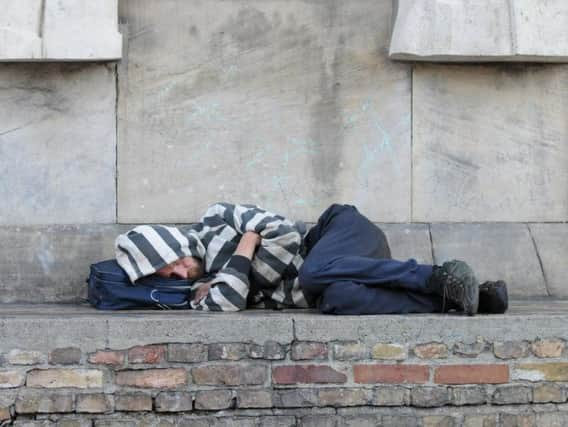The number of people sleeping rough has increased across Aylesbury Vale, official stats show


More affordable homes need to be built in Buckinghamshire, the county council leader said after figures showed a increase in people sleeping rough.
Figures from the Department for Communities and Local Government show more than half of councils in England recorded a rise in rough sleeping compared with the year before. The total number of people sleeping rough on the streets across the country is more than 4,000.
Advertisement
Hide AdAdvertisement
Hide AdThe Local Government Association, which represents councils, called for the Government to give them powers and funding to build affordable homes. Aylesbury Vale saw an increase in rough sleepers from 15 in 2015 to 26 in 2016.
Bucks County Council leader Martin Tett, its housing spokesman, said: “This is vital to end homelessness.”
The housing charity Shelter blamed “the lack of affordable homes coupled with cuts to welfare” for the “tragic” situation. Crisis said there was “no time to waste”. Jon Sparkes, the chief executive of Crisis, said: “Behind these statistics are thousands of desperate people, sleeping in doorways, bin shelters, stations and parks - anywhere they can find to stay safe and escape the elements.
"Rough sleeping ruins lives, leaving people vulnerable to violence and abuse, and taking a dreadful toll on their mental and physical health. This is no way for anyone to live.”
Advertisement
Hide AdAdvertisement
Hide AdAn AVDC spokesman said: “Many factors have led to a national rise in rough sleeping and unfortunately this has been reflected locally.
"We work in close partnership with many local organisations in our efforts to reduce and tackle the causes of rough sleeping, including providing funding for local charities.
"We have recently been selected as an innovative, national ‘trailblazing’ authority, receiving £625,000 to trial a new way of preventing homelessness through early identification and intervention.”